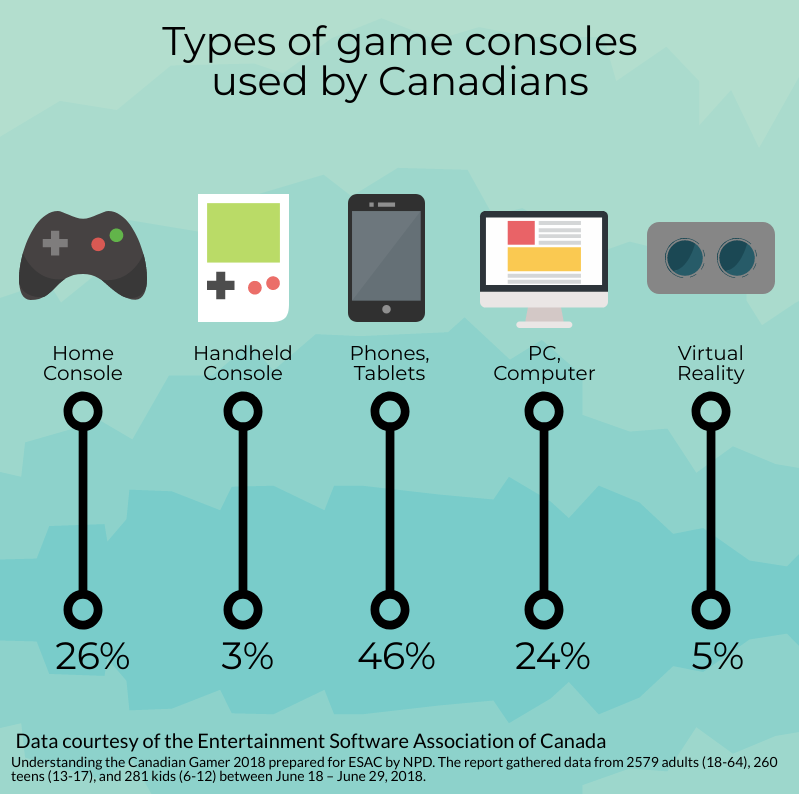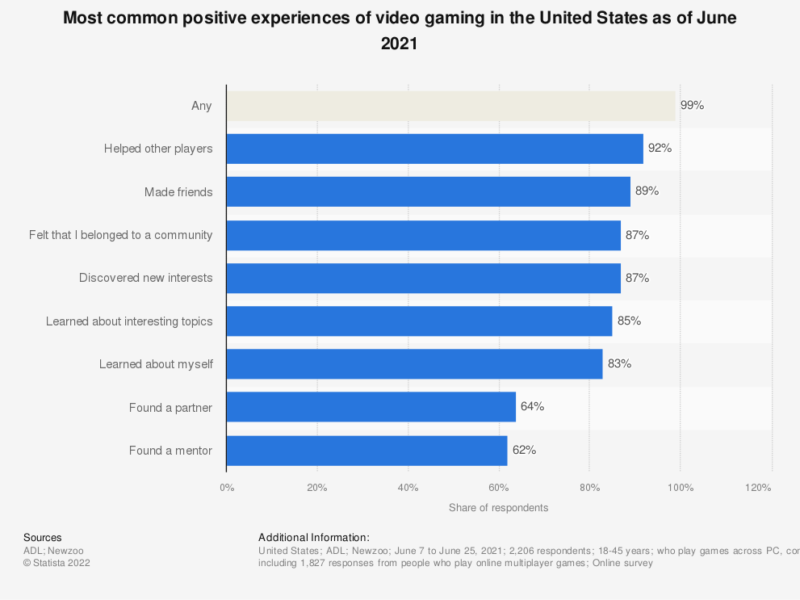Introduction
Background information on video games
Video games have become an increasingly popular form of entertainment over the past few decades. With the rise of technology, video games have evolved from simple arcade games to complex, immersive experiences that can be played on a variety of platforms, including consoles, computers, and mobile devices. The video game industry has grown to become a multi-billion dollar industry, with millions of people around the world playing games on a regular basis. While video games have been criticized for their potential negative effects on mental health, they have also been praised for their ability to provide a sense of escapism and relaxation for players.
Importance of mental health
The importance of mental health cannot be overstated. It affects every aspect of our lives, from our relationships to our work performance. Video games have been shown to have both positive and negative effects on mental health. On one hand, they can provide a sense of relaxation and stress relief. On the other hand, excessive gaming can lead to addiction, social isolation, and other negative consequences. It is important to strike a balance and be mindful of how much time we spend playing video games, and to seek help if we feel that our gaming habits are negatively impacting our mental health.
Purpose of the article
The purpose of this article is to explore the impact of video games on mental health. With the increasing popularity of video games, it is important to understand how they affect our mental well-being. While some studies suggest that video games can have positive effects on mental health, others argue that excessive gaming can lead to addiction, aggression, and other negative consequences. By examining the existing research on this topic, we hope to provide a comprehensive overview of the relationship between video games and mental health. Ultimately, our goal is to help readers make informed decisions about their gaming habits and promote healthy gaming practices.
Positive impacts of video games on mental health
Improvement in cognitive skills
Video games have been found to improve cognitive skills in individuals. Studies have shown that playing video games can enhance attention, spatial reasoning, memory, and problem-solving abilities. These skills are particularly important in today’s fast-paced world, where individuals need to be able to process information quickly and make decisions efficiently. Additionally, video games have been found to improve hand-eye coordination and reaction time, which can be beneficial in a variety of settings, including sports and driving. Overall, the improvement in cognitive skills that video games provide can have a positive impact on an individual’s mental health and well-being.
Stress relief and relaxation
Video games have been found to provide stress relief and relaxation for many individuals. Studies have shown that playing video games can reduce stress levels and improve mood by providing a distraction from daily stressors. Additionally, video games can provide a sense of control and mastery, which can be empowering and boost self-esteem. Games that incorporate relaxation techniques, such as deep breathing or meditation, can also be beneficial for reducing stress and promoting relaxation. However, it is important to note that excessive gaming can have negative effects on mental health, so moderation is key. Overall, video games can be a helpful tool for managing stress and promoting relaxation when used in a healthy and balanced way.
Socialization and community building
Socialization and community building are two important aspects of mental health that can be positively impacted by video games. Many video games offer multiplayer modes that allow players to connect with others and build communities. This can be especially beneficial for individuals who struggle with social anxiety or have difficulty making friends in traditional settings. Additionally, online gaming communities can provide a sense of belonging and support for individuals who may feel isolated or alone. However, it is important to note that not all online communities are positive or supportive, and some may even contribute to negative mental health outcomes. It is important for individuals to carefully consider the communities they participate in and to prioritize their own mental health and well-being.
Negative impacts of video games on mental health
Addiction and compulsive behavior
Video game addiction and compulsive behavior have become increasingly prevalent in recent years. Studies have shown that excessive gaming can lead to negative consequences such as poor academic performance, social isolation, and even physical health problems. The addictive nature of video games can be attributed to their ability to provide immediate rewards and a sense of accomplishment, which can lead to a cycle of compulsive behavior. It is important for individuals to recognize the signs of addiction and seek help if necessary, as video game addiction can have a significant impact on mental health and overall well-being.
Aggression and violence
Aggression and violence are often associated with video games, particularly those that involve shooting or fighting. However, research on the link between video games and aggression has been mixed. Some studies suggest that playing violent video games can increase aggressive behavior, while others have found no significant correlation. It is important to note that aggression is a complex behavior that can be influenced by a variety of factors, including individual differences, social context, and exposure to real-life violence. While video games may contribute to aggressive behavior in some individuals, it is not the sole cause and should be considered in the larger context of mental health and well-being.
Isolation and loneliness
Isolation and loneliness are two major issues that can arise from excessive video game use. Spending long hours playing video games can lead to social isolation, as individuals may withdraw from real-life social interactions and relationships. This can result in feelings of loneliness and depression, which can further exacerbate mental health issues. Additionally, online gaming communities can sometimes be toxic and hostile, leading to feelings of alienation and social rejection. It is important for individuals to maintain a healthy balance between video game use and real-life social interactions to prevent the negative impact of isolation and loneliness on mental health.
Factors that influence the impact of video games on mental health
Type of game
Type of game can also play a significant role in the impact of video games on mental health. Research has shown that violent video games can increase aggression and desensitize individuals to violence. On the other hand, games that promote problem-solving, social interaction, and relaxation can have positive effects on mental health. For example, puzzle games have been found to improve cognitive function and memory, while multiplayer games can enhance social skills and reduce feelings of loneliness. It is important to consider the type of game being played and its potential impact on mental health when choosing which games to play.
Duration and frequency of gameplay
The duration and frequency of gameplay have been found to have a significant impact on mental health. Studies have shown that excessive gaming, particularly for extended periods, can lead to negative outcomes such as addiction, social isolation, and poor academic performance. Additionally, frequent gaming has been linked to increased anxiety and depression symptoms, as well as decreased self-esteem and overall life satisfaction. It is important for individuals to monitor their gaming habits and ensure that they are not negatively impacting their mental health. Moderation and balance are key in maintaining a healthy relationship with video games.
Individual differences
Individual differences play a crucial role in determining the impact of video games on mental health. Some individuals may be more susceptible to negative effects such as addiction, aggression, and social isolation, while others may experience positive effects such as improved cognitive function and stress relief. Factors such as age, gender, personality traits, and pre-existing mental health conditions can also influence the impact of video games. It is important for individuals to be aware of their own individual differences and to monitor their video game use accordingly to ensure that it is not negatively impacting their mental health. Additionally, game developers can take individual differences into account when designing games to promote positive mental health outcomes.
Conclusion
Summary of findings
In summary, the impact of video games on mental health is a complex issue with both positive and negative effects. While video games can provide a source of stress relief and social connection, excessive gaming can lead to addiction, aggression, and social isolation. It is important for individuals to monitor their gaming habits and seek help if they feel their mental health is being negatively affected. Additionally, more research is needed to fully understand the long-term effects of video game use on mental health.
Recommendations for healthy video game use
To ensure healthy video game use, it is recommended to set limits on screen time and take frequent breaks. It is also important to choose age-appropriate games and to monitor the content of the games being played. Additionally, engaging in physical activity and socializing with friends and family outside of gaming can help maintain a healthy balance. It is crucial to be aware of any negative effects that gaming may have on mental health and to seek professional help if necessary. By following these recommendations, individuals can enjoy the benefits of gaming while maintaining their mental and physical well-being.
Future research directions
Future research directions in the field of video games and mental health should focus on exploring the potential benefits of gaming as a therapeutic tool. While there is some evidence to suggest that video games can have positive effects on mental health, such as reducing stress and anxiety, more research is needed to fully understand how and why this occurs. Additionally, studies should investigate the potential for video games to be used in conjunction with traditional forms of therapy, as well as the development of video games specifically designed for mental health treatment. By continuing to explore the relationship between video games and mental health, we can better understand how to use this technology to improve overall well-being.


